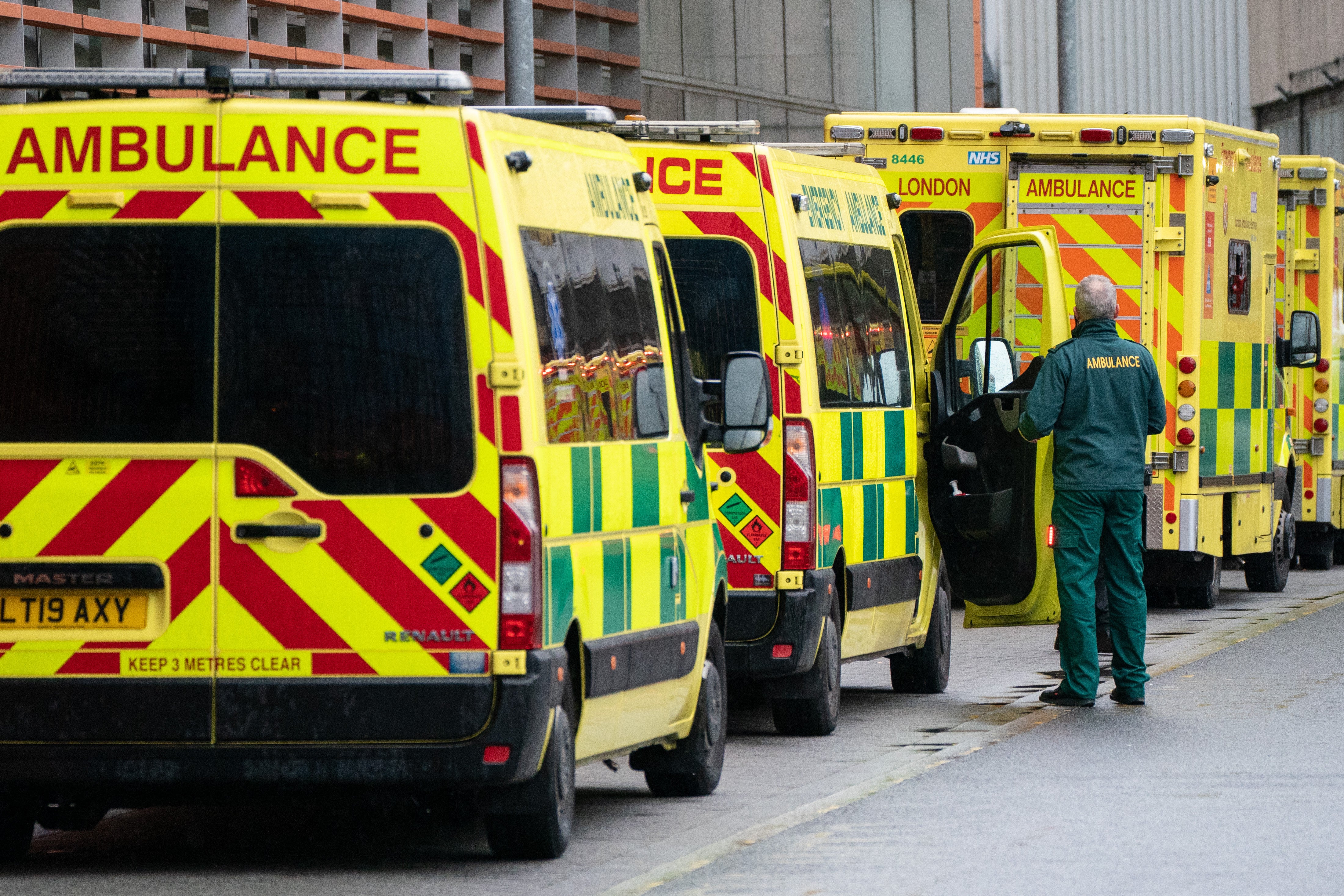Nearly one in four ambulance handovers delayed by at least 30 minutes
Around one in 10 delays lasted more than an hour.

Your support helps us to tell the story
From reproductive rights to climate change to Big Tech, The Independent is on the ground when the story is developing. Whether it's investigating the financials of Elon Musk's pro-Trump PAC or producing our latest documentary, 'The A Word', which shines a light on the American women fighting for reproductive rights, we know how important it is to parse out the facts from the messaging.
At such a critical moment in US history, we need reporters on the ground. Your donation allows us to keep sending journalists to speak to both sides of the story.
The Independent is trusted by Americans across the entire political spectrum. And unlike many other quality news outlets, we choose not to lock Americans out of our reporting and analysis with paywalls. We believe quality journalism should be available to everyone, paid for by those who can afford it.
Your support makes all the difference.Nearly one in four patients arriving by ambulance at hospitals in England last week waited at least 30 minutes to be handed over to A&E departments – the highest level since the start of winter, new figures show.
Some 20,274 delays of half an hour or longer were recorded across all hospital trusts in the seven days to March 13, according to NHS England.
This was 24% of the 84,029 arrivals by ambulance.
The proportion of handovers delayed by at least 30 minutes has now risen four weeks in row, having stood at 20% in mid-February.
Figures for ambulance delays are published by NHS England and the current data runs from the start of December 2021.
The previous high was 23% in the week to January 9.
A handover delay does not always mean a patient has waited in the ambulance. They may have been moved into an A&E department, but staff were not available to complete the handover.
Nearly 9,000 arrivals last week – 10% of the total – waited more than an hour to be handed to A&E teams, up slightly from 9% in the previous week.
Chris Hopson, chief executive of NHS Providers, said the latest figures showed the NHS was “still facing significant pressures” and there was “no sign” of them easing as spring arrived.
“It is worrying that handover delays have increased for the fourth consecutive week, with nearly a quarter having to wait 30 minutes or more – reflecting wider pressures across health and care,” he added.
“While it is positive that the levels of serious illness are lower than in previous waves – which demonstrates just how successful the vaccination programme has been – the rising number of patients with Covid-19, combined with increased staff absences, will have knock-on effects for patient care.”
Separate figures published on Thursday showed staff absences at NHS hospitals in England due to Covid-19 have jumped to their highest level for a month, with numbers climbing in all regions.
Patient levels in hospital are also rising, though they remain well below the peak reached at the start of the year during the Omicron wave.